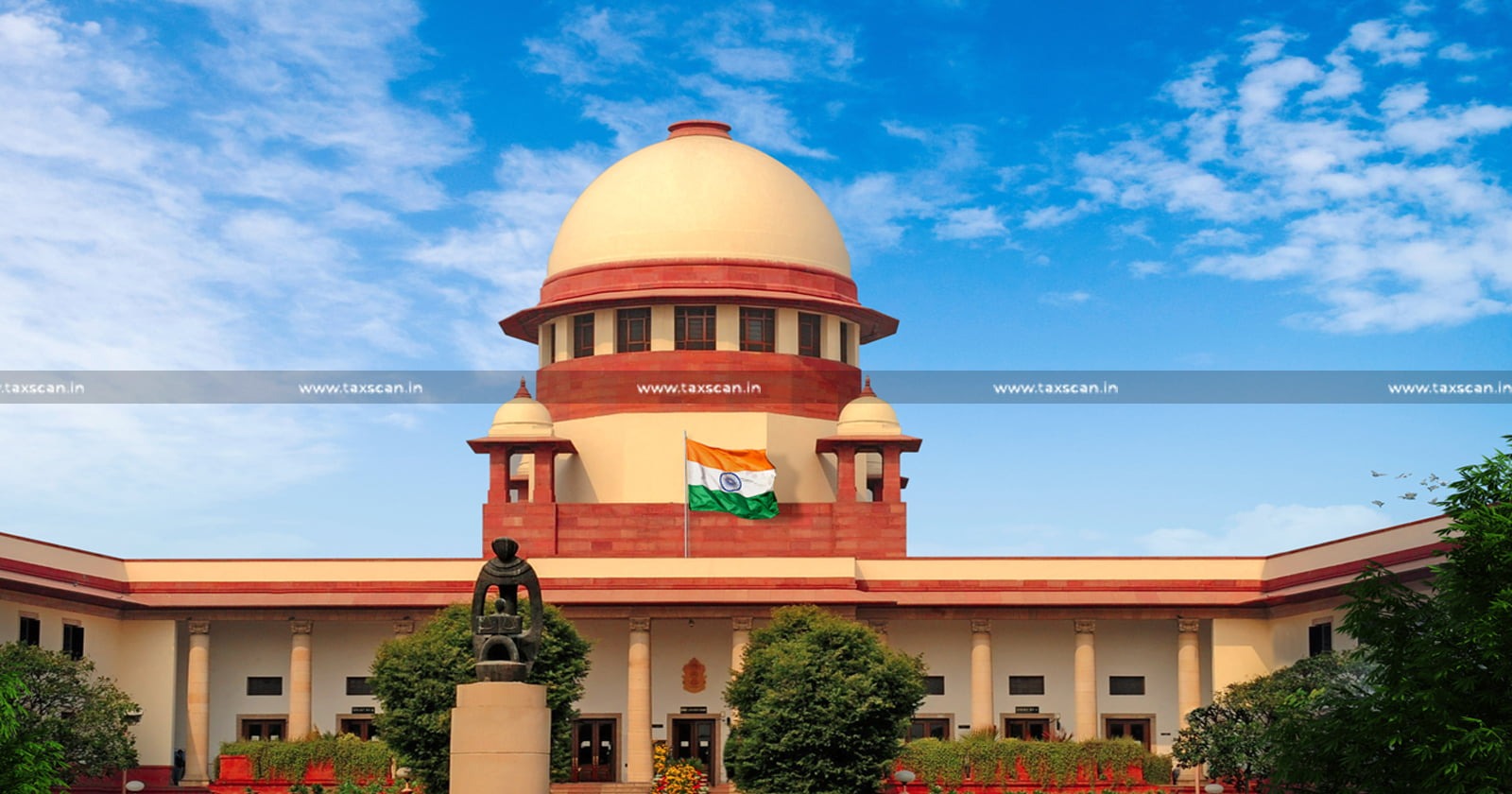Prior Approval of CCI Mandatory before CoC Examination on Resolution Plan Involving Combination: Supreme Court [Read Judgement]
The Court held that the resolution proposal that was rejected by the CCI was not acceptable and the plan could not be authorized as a result

Prior Approval of CCI – Prior Approval – CCI – CCI Mandatory – CoC Examination – Resolution Plan – Resolution Plan Involving Combination – Supreme Court – taxscan
Prior Approval of CCI – Prior Approval – CCI – CCI Mandatory – CoC Examination – Resolution Plan – Resolution Plan Involving Combination – Supreme Court – taxscan
The Supreme Court observed that a resolution plan under the Insolvency and Bankruptcy Code (IBC), 2016, containing a proposed combination should only be placed before the Committee of Creditors (CoC), after it has been approved by the Competition Commission of India (CCI).
The appellant, Independent Sugar Corporation Ltd., has presented its Resolution Plan to Hindustan National Glass and Industries Ltd. (HNGIL), the corporate debtor. The current respondent, AGI Greenpac, then filed an application with the CCI advising them of a combination with HNGIL in accordance with the requirement. The CCI, however, ruled that the same was invalid. The respondent's plan was then accepted after final Resolution Plans were presented to the CoC for review.
The combination proposal mentioned above has been approved by the CCI. The same was made subject to compliance with specific changes, such as a divestment strategy that the respondent supplied. The appellant challenged this at the NCLT, and the tribunal upheld the decision. The NCLAT upheld the clearance in the appeal as well, holding that while the CCI's approval was obligatory, its prior approval was just directory. In addition, the appellant has contested the CCI permission in front of the NCLAT. The Supreme Court heard the case against this backdrop.
Boost Your Business with SME IPO Funding Strategies - Enroll Now
The Justices Hrishikesh Roy and Sudhanshu Dhulia noted in a 2:1 majority decision that if a resolution plan contains a combination, the CCI's approval must be acquired first, and the CoC's review and approval should follow the CCI's decision.
The Court cited the IBC's Section 31(4) proviso, which reads, "Provided that where the resolution plan contains a provision for combination, as referred to in section 5 of the Competition Act, 2002 (12 of 2003), the resolution applicant shall obtain the approval of the Competition Commission of India under that Act prior to the committee of creditors approving such resolution plan."
The proviso to sub-section (4) of section 31 is necessary and would be compliant with the Competition Act and the IB Code, according to Justice SVN Bhatti's dissenting opinion, which also argued that the requirement for prior clearance from the CCI was not required. Therefore, it would be appropriate and lawful for the Adjudicating Authority to review the resolution plan and grant CCI's combined approval under section 31(1).
Furthermore, it was held that this interpretation maintains the successful resolution applicant's operations as a going concern while adhering to the strictures of the Competition Act. At the same time, a year is given to acquire licenses, permissions, consents, and other regulatory approvals that are envisioned by various laws. It was observed that the CoC's approval of a combination of CCI at the stage of consideration is optional rather than required.
Boost Your Business with SME IPO Funding Strategies - Enroll Now
The Court ruled that the proceedings take on an in rem character once the resolution procedure is started. The phrase "any person aggrieved" must also be read broadly under the Competition Act. The Court reasoned that this word would apply to anyone who brought information about a violation of the Competition Act.
The Court came to the conclusion that the current appellant would fall within the category of an aggrieved person because they were an unsuccessful resolution applicant whose plan was rejected.
The Court clarified that literal interpretation, not purposeful construction, will be applied in this case because the wording employed in Section 30 is unequivocal and explicit. It also made clear that rigorous respect to legislative intent is required in statutory enactments such as the IBC.
While acknowledging the CoC's commercial wisdom, the court clarified that the legislature intentionaly provided the CCI’s prior approval in such resolution plans. The Court held that the resolution proposal that was rejected by the CCI was not acceptable and the plan could not be authorized as a result.
The Court rendered the present plan unsustainable and quashed the same. While allowing the set of appeals, the Court ordered the CoC to reconsider the appellant's plan as well as any other resolution plan having the requisite CCI approval.
To Read the full text of the Order CLICK HERE
Support our journalism by subscribing to Taxscan premium. Follow us on Telegram for quick updates


